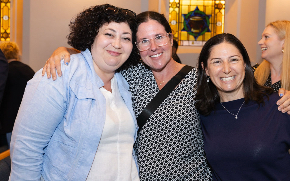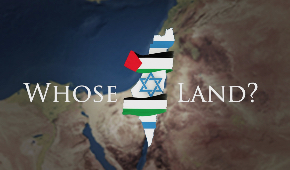From Australia’s Jewish past
Eva Bacon – dress designer, political activist, and feminist

Eva Bacon
Eva was born on 1 October 1909 in Vienna. She was the eldest of three children and only daughter of Hungarian-born Heinrich Goldner, a commercial traveller, and his Czech-born wife Camilla. Heinrich was an orthodox Jew, and Camilla was liberal in her Judaism and was the more influential parent. She endeavoured to pass her firm and independent moral code to her children. Whether in the classroom or with private tutors, Eva excelled in the arts, languages, and music, and consistently topped her school overall.
At a time of growing antisemitism, a teacher helped her adjust to her heritage by pointing out that being Jewish meant striving to be honest and considerate and seeking knowledge and understanding. Her parents could not afford to send her to university, so reflecting her mother’s belief in the value of a trade, she studied dressmaking at a state technical college. After graduating and gaining experience as an employee, she set up her own business in the family flat, designing and making clothes.
Eva believed that only socialism would ensure world peace, eliminate antisemitism, and provide for all working people. She joined the Social Democratic Workers’ Party of Austria’s youth organisation. When the party was declared illegal in 1934, she continued, with great courage, to distribute its publications and take part in study groups. She served as a member of the International Red Aid, a Communist organisation established to aid political prisoners. Following the Anschluss in 1938, and with her brothers abroad, she and her mother gained permission to travel to Britain in January 1939. One brother, Fritz (Freddy), had already come to Australia the previous year and was able to sponsor their onward passages. They arrived in Brisbane in February 1939, and her other brother, Johann (John), joined the family from Argentina in 1948.
In Brisbane, Eva continued to work as a dress designer and cutter. She became the treasurer of a fundraising organisation for Jewish refugees. In 1941, she joined the Communist Party of Australia, which, at the time, was an illegal organisation. On 3 May 1944, at the general registry office in Brisbane, she married Edwin (Ted) Bacon, who was serving in the Australian Imperial Force. He was a fellow communist and became a full-time organiser of the CPA. Until her husband’s army service ended in 1946, Eva devoted her time to the welfare committee of the CPA. Its role was to communicate with communists in the armed services and sustain their morale. The office became a hub of radical activity in Queensland and she travelled organising discussions and social events in various townships, running these herself to help those attending deal with their problems. After the war she worked within the community through the CPA’s branch in Enoggera, Queensland.
The CPA suggested that Eva become involved in the Union of Australian Women (UAW) and, after initial misgivings, she joined the organisation in 1950. She helped to build the union, becoming its state secretary from 1972 to 1980 and fostered its wide-ranging platform that included women’s right to work, equal pay and conditions, affordable childcare, and Aboriginal and Islander rights. In 1952, as a UAW delegate, she returned to Vienna for the International Conference in Defence of Children. From 1954 to 1974, she was Secretary of the Brisbane International Women’s Day Committee.
Eva wrote for the communist press and was a dedicated member of the CPA’s State Committee and its women’s collective, often mediating between the committee and the younger, more radical members. With the emergence of women’s liberation in the late 1960s, she became quite a feminist, while reaffirming her belief that only once socialism was achieved would women achieve equality. By 1972, she was even more involved in the cause, expressing the argument that the ‘consciousness raising activities’ of Women’s Liberation groups had the ‘potential of helping to create new human beings,’ and could ‘help women to gain a new world’. She assisted in establishing the Socialist Feminist Forum, among other feminist meetings.
Representing the UAW, Eva gave evidence to the 1973 Commission of Inquiry into the Status of Women in Queensland and attended the 1975 International Women’s Year Tribunal held in Mexico City. She was also active in People for Nuclear Disarmament, the Women’s Electoral Lobby, and the Women and Labour national conferences. Unfortunately, her daughter, Barbara, suffered mental health difficulties, and in the 1980s she joined the Association of Relatives and Friends of the Mentally Ill.
Only five feet tall, Eva was nicknamed ‘Mighty Mouse’. She enjoyed the mutual support of a group of similarly dedicated and talented women, notably Doris Webb, Jessie Ferguson, and Connie Healy. Sociable, she made friends easily and, as a good cook, entertained frequently. She did translations and loved classical music and the songs of Bertolt Brecht and Kurt Weill.
Survived by her husband and their daughter, she died on 23 July 1994 at Kangaroo Point, her body was received at the University of Queensland’s Department of Anatomical Sciences. An obituary in the Melbourne Age newspaper extolled her ‘warmth, sharp political mind, remarkable vitality and fighting spirit’. Dame Quentin Bryce described her as inspirational. She was honoured with a street named ‘Bacon’ in the Canberra suburb of Denman Prospect. The Fryer Library at the University of Queensland has a collection of her and her husband’s papers.
The AJHS acknowledges the following references in the preparation of this story:
Australian Dictionary of Biography – Deborah Jordan; The Australian National University; The University of Queensland; The Australian Women’s Register; The Melbourne Age – 30 August 1994

The Australian Jewish Historical Society is the keeper of archives from the arrival of the First Fleet in 1788 right up to today. Whether you are searching for an academic resource, an event, a picture or an article, AJHS can help you find that piece of historical material. The AJHS welcomes your contributions to the archives. If you are a descendant of someone of interest with a story to tell, or you have memorabilia that might be of significance for the archives, please make contact via www.ajhs.com.au or [email protected].








